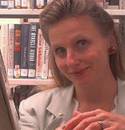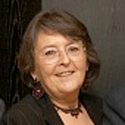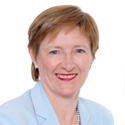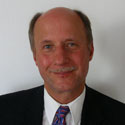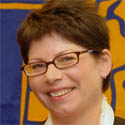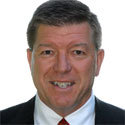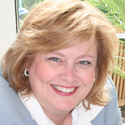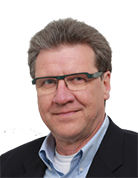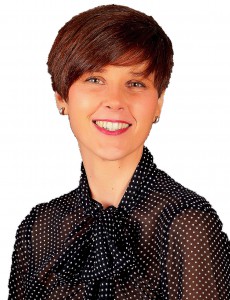The Early Years of the District 59
The Early years and the Continental Committee of European Toastmasters
Toastmasters were founded in 1924 in America. After that it took about thirty years, for the very first seeds of Toastmastering to float across the Atlantic to Europe. These initial seeds of Toastmasters were brought to Europe by members of the American Military, who spend time in Europe and who wanted to establish this familiar culture in the areas around their bases. European did not buy easily into the idea of improving their public speaking. Public speaking skills seemed to be of low importance to them at that time.
As Gavin Alexander, one of the first CCET chairmen recollects:
“… Except for American servicemen on US military bases who had heard about Toastmasters in the USA, it was virtually unknown in Europe. I think the average Belgian, German or French person tended to look askance at this new fangled “American” idea, probably seeing it as a rather typical part of “the American way of life”, meaning an expression of their obsession with selling (both products and themselves), business, and making money. A lot of which had to do with the very different school system in the US, where social skills, particularly being able to get up and speak to audiences, were regarded as much more important than in Europe. European schools used to be (and possibly still are) quite conservative in this regard, although this may be changing. Another anecdote: I remember telling an English friend once that I was in Toastmasters, where up he replied, mockingly: “Oh that’s the club where people like talking”. Was it part of his British reserve when it came to people standing up on soap boxes and haranguing audiences. Anyway, I hastened to point out to him that this was far from the truth, in fact it was almost the opposite, that most Toastmasters have to overcome a great deal of fear to be able to get up and speak in public but I wasn’t able to convince him, and he never joined.
To further illustrate this change of “climate” re. Toastmastering in Europe, I recall talking to German guests at the SITC, some of whom spoke reasonably good, if slightly “academic” English, but who, when I invited them to join, refused on the grounds that they felt their English wasn’t good enough. Of course this often wasn’t true, but no amount of persuasion helped; they simply felt too shy about standing up and speaking in front of people who (to them) seemed so eloquent in the language, which I could sympathize with, since I went through the same agonies in my early years in Germany while I was still learning the language.
It’s a very different matter being able to make yourself understood in everyday situations in a foreign language from holding a speech. And even though my German has improved since then, I still invest extra preparation before holding speeches in German, because, in the stress of an audience situation, I’m all too aware of the additional limitations that my less-than-perfect knowledge of the language places on my presentation. And it’s also worth remembering in this context that, in general, it’s rarely the confident, extroverted person with the “gift of the gab” who joins Toastmasters, but more often the shy and introverted ones who realize that Toastmasters offers them help in overcoming these difficulties.”
First Toastmasters clubs appearing in Continental Europe
This was the situation in Europe when the first Toastmasters started appearing here.
The History of Toastmasters in Europe dates back to the 1950s when the first Toastmaster clubs started to appear. In the beginning, these clubs seemed to focus less on developing rhetorical skills, as was the purpose in America, and rather more on having a great time! The First Toastmasters in Europe tended to meet over a dinner and enjoy listening to other members who had something to say. As one early European Toastmaster wrote in his recollections, for Europeans gathering together as toastmasters was not related so much to developing their own personalities or making business contacts, but to enjoy a meal and listen to their friends talking. During these first toastmasters’s meeting, the speeches were mainly delivered by American members of the Organization.
As former chairman of CCET, Gavin Alexander, recollected:
“Some members of the Paris TM club used to grumble in private about (mostly French) members who flatly refused to give speeches, seeing the club simply as a place to spend a pleasant evening over a nice meal while listening to others give speeches. I can still recall American Toastmasters (Bernie Pease for one) scornfully referring to the Paris club as a kind of “sewing circle”, or words to this effect. Typical of Americans, Bernie saw Toastmasters not just as an enjoyable hobby but more as a way of bettering himself, of furthering his career, and of course of earning more money, which wasn’t really, I believe, at that stage, so common among Europeans (nowadays with globalization all this is changing, of course).”
At that time all clubs that appeared in different parts of Europe had little or no contact to each other. As one of first active District Toastmasters recollects:
“Prior to this, even the aforesaid mainly American military TM clubs seemed a long way away, not like nowadays, when traveling around the country (or even to other countries) for Toastmasters meetings is normal (we had less money in those days). And we didn’t have internet, faxes and mobile phones.
Added to which our present District 59 is now firmly established, and Area Governors are doing their jobs servicing the clubs in their areas (definitely NOT always the case 20-odd years ago). And there is now a new spirit of mobility and shared experience among European Toastmasters that was only in it’s infancy in my day.”
A handful of European clubs decided to join
In the year 1979 this small handful of European clubs decided to join together to try and propagate Toastmasters Europe wide. They decided to form a group, and decided on the name “the Continental Council of European Toastmasters” (CCET). At that time, it was almost possible to count all clubs in Europe using only the fingers of both hands. The process of uniting these few clubs was not an easy job, since it was difficult to attract many Europeans to improve their rhetorical skills, to grow clubs and, secondly, it was difficult to unite those disparate clubs into one organization.
Most toastmasters did not know anything about their toastmaster cousins in other countries and moreover about the CCET. As one of former chairmen of the CCET, Gavin Alexander, recollected:
“When I jointed the CCET as EVC in 1981, the average European Toastmaster hadn’t even HEARD of the CCET. And even when they did begin hearing about it, they usually didn’t have a clue what it was about as I didn’t either, initially. And few non native English speaking members cared much, either, mainly because most of them were so busy just finding out what Toastmasters was all about in their own clubs, where they had enough problems to deal with. English language skills for them were far below what they are today, for which there are a number of reasons, including that in those days English didn’t have much priority in schools, and it was quite poorly taught (up till sometime in the 1990s, English was the subject in schools that more students failed than any other), so that for the average German member, giving a speech could be something of a major operation. Even today it is probably a bit difficult for the new generation of young Toastmasters to fully appreciate this, since they are growing up in a globalized, capitalistic world, which is dramatically changing almost everything everywhere, not only in Europe. Increasing in Europe these days we are getting large numbers of well educated, highly competent and motivated young people, Germans and others, who are fully seized of how important it is for them to improve both their English as well as their communication skills if they are to be successful in their careers, especially internationally. This wasn’t the case in my day.”
CCET and on the way to the District
“On a mid November day in 1997, a small band of dedicated toastmasters made their way to Kaiserlautern following the call of Bernie Pease, DTM. Bernie had an objective: to create a structure in continental Europe, the CCET, to mirror a full Toastmasters District. He also had a vision: to ultimately build it up into a full district.” –A Toast to 20 Years, by Henry Blount, Clarion January 2000
When council was formed in 1979, according to Rob Cockburn, “there were clubs in Brussels, Frankfurt, Heidelberg, Laar, Luxembourg, Munich, Paris, Stuttgart, Vienna , Wiesbaden, Würtzburg, Zürich, and Zweibrucken. The Council initially met only once a year, primarily to hold speech contests. Club officer training consisted of the outgoing President handing over some books saying, “here read this”. There was no Area Governor training.”
With the foundation of CCET. the situation in European Toastmastering changed. Area governors (during that time there were already 5 areas in Europe), started to receive training from the District representative. At conferences, the number of educational sessions almost doubled and contests were held not only in English, but also in German and French.
The first Table Topic contest winner was Henry Blount, the chairman of the CCET 1996-1997. The first CCET’s Area Governor of the year and the first DTM in Europe was Tim Keck, who later would contribute hugely to the CCET becoming an official District.
Adding regular contests and conferences
At that time the CCET paid a lot of attention to having contests and conferences regularly. Among the speech contests that were hold in 3 languages, the CCET had a speech contest among District officers, who according to TMI official rules, were not allowed to participate in the regular contests. Also, one of the specialties during the CCET era were special contests in Parliamentary Procedures.
As former CCET. chairman, Lawrence Applebaum, recollected:
“The parliamentary procedures contest was very entertaining. Each candidate was the chairperson of an executive committee meeting. The members of the executive committee, usually four or five Toastmasters, worked from a prepared script. Obviously, the candidate had no prior knowledge of the script. However, the candidate was permitted to make notes as the contest progressed.
The meeting followed Robert’s Rules of Order. The time limit was 10 minutes, that is, after ten minutes, the meeting was over whether or not they got through the script or not. The focus of the script was to get the committee to agree on a course of action. Someone on the committee would initially present an idea. The idea was alwaysrelated to something in Toastmasters. For example, the committee could discuss asimple campaign to increase club membership or an internal program to improvethe club educational sessions.
Next came the discussion and then they began making motions, amendments to motions, points of order, etc. There were also problems such as people not waiting to be recognized before speaking, trying to vote on the principal amendment beforedealing amendments to the amendment, etc. The goal was to get the committee toagree on the final motion, clearly state what was to be done, and then vote on themotion.As simple as the whole operations started out, sometimes it became very complicated.”
All conferences were well organized and had a great value that all participants once one conference was over, were looking forward to the next one. As Ralph Jones, a former secretary in CCET. recollected:
“When it comes to conferences in Europe, there was an expectation that any gathering, there would not only be good Toastmastering, but also good conversation, good socializing, good food and drink, and most of all, a good time to be had by all. In essence, I viewed District 59 Conferences as an event, not just an activity. I even had fun just traveling to conferences with my fellow club members. It was like a mini-vacation. They were not only an event, but also a cultural event and something to look forward to every six months.”
The Impossible Dream
Now after building the CCET, the next dream and challenge for the future District was to become an official District and not only a mirror of a district to fulfill the vision of Bernie Pease. That was not an easy step. It took about 20 long years to achieve that.
As Bill Hamilton, former CCET. chairman reflected on the long way the CCET. had passed on the way to become a district in his article “Impossible Dream”:
“A little over four years ago at the General Meeting of the CCET in which I became Chairman, it was stated that we could never become a District because we would never have sufficient clubs. On the drive home from Buxtehude I didn’t ask “why”, I asked instead “why not?” I looked over the continent of Europe (excluding England and Ireland, which already were District 71) and upon arriving home in Heidelberg I wrote Ian Edwards who would become the incoming International President of Toastmasters, requesting admittance as a district. He immediately turned my letter over to the Executive Director of Toastmasters International, and he in a lengthy epistle explained to me why we could not become a district and all of the multitudinous steps that would be involved in us ever achieving that Impossible Dream. Therein began our quest. At the upcoming Toastmasters International Conference which was held in August, I, Chris Magyar, the Vice- Chairman for Education and Rob Cockburn, then a former CCET Chairman, met with Terry McCann, the Executive Director of Toastmasters, along with some of his assistants, Stanley Stills and Daniel Rex, and we began the lengthy process of advancing to the coveted position of becoming a district within Toastmasters.
Becoming a provisional district would be our first goal. We were told that we needed more clubs, especially within central Europe, as Toastmasters at that time were not interested in the fringes of Europe (those nations which had been behind the Iron Curtain), nor other countries far removed from our central base of Germany, France, Belgium, and Luxembourg. We also needed to increase the membership in our existing clubs, and embark on a program of leadership training for our Area Governors and Club Officers. In October Chris Magyar with the assistance of Peter Kenton, arranged for our first ever two-day session of the CCET Executive Board in Metz, France. For the first time an important contingent of French-speaking Toastmasters was in attendance. Officers Training and a session of Parliamentary Procedure was presented by the CCET Executive Board. Rob Cockburn and Gavin Alexander, both former CCET Chairmen, joined in the team by providing instructions and training. This was something that had never been done before in the CCET. It was a huge success. Our next step was in joining with our big brothers, District 71, in their Fall Conference held in Dublin. Besides myself, accompanied by Ardelle, were Peter Kenton, Jim Huggard, and others from the CCET. We received a warm welcome by Ken Norman, their District Governor, Ted Corcoran, their Immediate Past District Governor who was embarking on a campaign to become the International Director from overseas, and all of the many other club and district officers. The following February Ken Norman and his wife came to Paris. There they met with our Executive Board to draft strategy to assist us in becoming a district. New budget proposals which were presented by our treasurer were approved and later presented to and adopted by the membership which has put us on a solid financial footing. Subsequently, our contributions to the campaigns of Tim Keck to become the Third Vice President of Toastmasters International and of Ted Corcoran as the International Director for Overseas Districts were rewarded by their presence at the Fall Conference held in Heidelberg in 1997. Each played a vital role in our quest for Provisional District status. The impossible dream which I had, has ultimately been brought to fruition through the major efforts as the torch was passed to the following CCET Chairmen, Henry Blount, Chris Magyar, Desmond McGettrick, and now Rob Cockburn. Through them a formal petition, along with the approval of a necessary quorum of clubs, was recently presented to Toastmasters International, and was considered and announced at their August meeting that we have been approved as a Provisional District, and will take effect on July 1, 2000. We, in Europe, will close out the Continental Council of European Toastmasters and welcome ourselves to a new status at the advent of the new millennium.”
District 59P
District 59P – Now their dream had come true.
At the Toastmasters International Convention in Chicago on 18 August 2001 at 1:50 PM, senior Vice President Tim Keck announced that the C.C.E.T. would become Provisional District 59P! That was the moment that many enthusiastic toastmasters had been waiting for since the C.C.E.T. was formed in 1979.
Now their dream had come true
Why did we receive number 59 where there were already many more Districts in the world already? “There once was a District 59 from July 1957 to June of 1973, and it comprised the state of Nevada, The northern part of the District 59 was joined with District 39 in 1937 while the southern portion was merged into the newly formed District 33 in July 1974. Since that tine, the number 59 had been kept in reserve until it was recycled for the new European district” (Clarion)
On 1 July 2000, the C.C.E.T. officially became a provisional District 59P. First of all this change gave the new District full access to the benefits that any official District has, including full acceptance during the training programs led by TMI and administrative assistance to help build a bigger club network in Europe. Our district became a district but under the following condition: we had to prove that we can grow. The goal that TMI set for the district 59P to prove our viability was to reach minimum 60 clubs within the next 4 years.
This task seemed to be impossible at that time; however, the desire to be a District was stronger than mere impossibility.
2001 – First Governor Dirk Husfeld
After receiving a status of a provisional District, it took European Toastmasters about 4 years to prove that they had it in them to be a real District. The first Governor of the new Provisional District 59P was Dirk Husfeld.
At the International Convention in Miami, Florida, USA they received the “Provisional District” status.
In the Clarion of April 2001 Dirk wrote: “The ‘p’ in our district designation, ’59p’. It stands for ‘provisional’, they say. My interpretation is different now: ‘p’ stands for ‘promising’. Here is why:
Very recently, I gave a talk at one of our clubs in Munich about the status of District 59p. (By the way, this was project 2 in “Speeches by Management”. Never lose a chance to give manual speeches.) While preparing that talk, I often checked the data that Christoph Stoppok, our Lieutenant Governor Marketing, provides on the Web. You will realize that we are among the top four of the 12 overseas districts! This has been consistently the case over the past months. Note also that the other two ‘provisional’ Districts (Taiwan and Japan) are also in this group of four. We’ll show World Headquarters that the word ‘provisional’ should evoke the best of associations and emotions! We are very ‘promising’ in all facets of the word.
There is obviously no reason why a new district — or a new club for that matter — should consider itself limited because it is new and inexperienced. On the contrary, it is the excitement and the enthusiasm that come with doing something new that make extraordinary results possible.
So keep up the good work. By working on getting the membership dues in and encouraging the clubs to plan the last speeches for budding CTMs, we should be able to present ourselves as a Distinguished District in our first year of existence. That would be something to be proud of. “
2001-2002 – District Governor: Alain Petillot
District Governor: Alain Petillot
Motto: Together, we achieve! Ensemble, nous réussirons! Zusammen, schaffen wir es!
- LGET: Christoph Stoppok
- LGM: Andreas Schmidt
- PRO: Denise Magyar
- Treasurer: Thierry Peirani
- Secretary: Christina Schultze
- Area 1 Governor: Mike Ferris
- Area 2 Governor: Vincent Schettini
- Area 3 Governor: Odile Petillot
- Area 4 Governor: Roy Skinner
- Area 5 Governor: Anna Eicher
- Area 6 Governor: Frank Hoffman
- Area 7 Governor: Sharon Abrahamson
- Area 8 Governor: Martin Schmädeke
- Area 9 Governor: Otto Schwerer
- Area 10 Governor: Ranger Russell
- Area 11 Governor: Ralph Jones
- IPDG: Dirk Husfeld
- Clarion Editor: John Knotts
Alain continued to lead the District’s along its journey full of challenges towards being accepted around the world. Alain was the first District governor who set a motto for the year. His motto was: “Together, we achieve !Ensemble, nous réussirons ! Zusammen, schaffen wir es!”
The existing Toastmasters were already consistently displaying their excellence; however, club growth was still too weak – the net club growth was only one club. Nevertheless, the district was well on its way to becoming an official District. During Alain’s term, the District produced: 30 Distinguished Clubs, 8 Selected Distinguished Clubs, 12 President Distinguished Clubs including 4 Clubs who achieved 10 of 10 goals!
30 Distinguished clubs out of 51 is a fraction of 59%. This was an excellent figure, far above the world wide average which is generally between 30 and 40 %.
Also, during this year, the district produced the very first Distinguished Toastmaster (DTM) from District 59P, Peter Kenton (July 2001). Peter was followed, one month later, by George Nigro and Ranger Russell (August 2001)
During the rest of the year, four other Toastmasters achieved their DTM:
- Ralph Jones (December 2001)
- Dirk Dewulf (January 2002)
- Alain Petillot (February 2002)
- Norman Hershfield (February 2002)
What was the Alain’s recipe for success? When asked, he replied:“Leading people scattered all over Europe is not easy. My recipe was: Believe in yourself, Have faith in others and Be a role model”
2002-2003 – District Governor Christoph Stoppok: Dropping the “P”
District Governor: Christoph Stoppock
Motto “Together we achieve“
Taking the motto “Together we achieve” from the previous year, Christoph led the district to become a President Distinguished District and being placed as number #4 in the world.
Due to these excellent results the District became a fully authorized district and dropped the Provisional “P”.
The lessons that Chrisptoph learned during the year of being a district governor he summarized as follows: “You can enjoy if you work hard. Make the work you do visible so you get recognition from the people.”
This was the year when the European District proved its growth potential and became a real Toastmaster District 59.
District 59
2003-2004 – District Governor Denise Magyar
Slogan: “Full Steam Ahead!”
Achieved: President´s Distinguished District
The first District governor of the fully recognized, non-Provisional, District 59 was Denise Magyar, a lady with a strong desire to lead the District ahead. Her motto for the year 2003 was “Full Steam Ahead!”
Denise inspired and motivated her leadership team and the members around herself to help them perform to their best potential. As a confirmation of the success, during the year, the District produced 164 CTMs exceeding district goals by 122%; 76 ATMs exceeding district goals by 200%; and 7 DTMs!
Denise’s mission was not easy. During her term, TMI World Headquerters shut down and overhauling their entire computer system. During this protracted, but necessary upgrade, updates on educational & leadership achievements, club growth, dues renewal status, membership and treasury reports were unavailable making it impossible to track district progress. Denise spent countless hours on the telephone with America submitting awards and making sure that the District achievements were recognized quickly.
Denise herself learned a lot during this year. She wrote: “I learned to delegate despite myself; Murphy’s Law and the adage ‘Assume makes an ass out of you and me’ prevail; be visible; remind, mentor and encourage those you serve of their obligation to their personal goals; electronic communication supplements not replaces a phone call; always answer emails even if it is to say you’ll reply later; the power of recognition; once you’ve decided your destination, focus on the steps that will get you there and you’ve got only 365 days to do your best: make every one of those days count because once it’s over you can never bring it back.”
As the result, the District became distinguished. As Denise recollects: “I wrote & directed, with the European TMs present at the TM conventions in North America, the first district presentations for the Overseas District Gala dinner in 2000 as well as in 2001, 2002 & 2003. When I was presented the President’s Distinguished Plaque in Reno, Ted whispered in my ear: At the time of my visit to Munich, I never thought the district would make distinguished. Look at you now”. District was on its way to success!
The full recognition of the District, Toastmasters year 2003/04 was also significant since being an official district entitled its spring speech contest winner (Ivan Moss) to participate in the Overseas District Speech Contest. During this year, the contest took place in Reno, Nevada, USA.
Additionally, during this year, Europe was honored to receive the first official visit from the then current International President, Ted Corcoran.
2004-2005 – District Governor Odile Petillot
Slogan “Aim high!”
Achieved: President´s Distinguished District
Officers:
- LGET Elizabeth Nostedt
- LGM Jim Phetterplace
- PRO Ileana Christodorescu
- Treasurer Marika Cederberg
- Secretary Nancy Jans
- IPDG Denise Magyar
Odile was the second consecutive female District Governor. With her motto “Aim high!”, Odile led the District to new heights! District 59 finished 6th in the world and was President Distinguished District for the third time in a row.
Significant internal achievements within the District for this year included creation of an entirely French speaking Division, Division A. Additionally, two further Divisions were born, G in the Scandic countries and H in Iberian Peninsula.
The District produced 192 CTMs, 85 ATMs and 9 DTMs.
We started growing. However, there were some challenges on the way to the top ranking Districts. Odile recollects: “Club growth was the biggest challenge: with 14 new clubs during my term, our District couldn’t pretend a better ranking. Being DG was for me a full time job, and a very demanding one, if I wanted to stay updated with everything that was going on all over the District. I learned to listen to people expressing their concerns, I learned to delegate – and it was then crucial to rely on a competent and trustworthy team. Most of all, I learned to cope with unfriendly and aggressive behaviors without being too affected.”
2005-2006 – District Governor Elizabeth Nostedt
Slogan “59 in 59!”
Achieved: President Distinguished District (3rd place worldwide!)
Officers:
- LGET Christopher Magyar
- LGM Zuzana Grofova
- PRO Barbara Hofmeister
- Treasurer Susan Cornell
- Secretary Irina Troshina
- IPDG Odile Petillot
Elizabeth started the year by announcing a challenging goal, 59 in 59, which meant building 59 new clubs within the Toastmasters year. This seemed like a very lofty target, however, Elizabeth wanted her officers to aim high. And as the result during this Toastmasters year the District 59 grew as never before! During 2005 – 2006 under Elizabeth, the award received was President’s Distinguished District – we were Number 3 in the World!
2006-2007 – District Governor Christopher Magyar
2007-2008 – District Governor Zuzana Grofova
2008-09 – District Governor Greg Palmer
2009-10 – District Governor Ellen Hermens
Slogan “Connect Through Diversity”
Achieved: President´s Distinguished District
Officers:
- LGET Benjamin Brühl
- LGM Alexandra Olsson
- PRO Ivan Aksenov / Tuire Vuolasvirta
- Treasurer Gerhard Hörger
- Secretary Morag Mathieson
- IPDG Greg Palmer
Ellen focused in her term as District Governor with her motto “Connect through diversity” on the different strengths contributing to a synergy of cultural differences of the district. Her District 59 executive committee members were from 19 different countries, they were: American, Australian, Austrian, Belgian, Czech, Danish, Dutch, English, Finish, French, German, Hungarian, Indian, Luxembourgian, Polish, Portuguese, Spanish, Swedish and Swiss.
Ellen and her team started treating the district like a business including a new budget and laying the foundation for a competence center and ambassador system.
Individual achievements: 328 CCs, 114 AC’s
Leadership award achievements: 48 ALB, 13 ALS, 100 CL, 13 DTM Total: 174
64% of clubs from base achieving Distinguished: 35 President’s Distinguished Clubs, 33 Select Distinguished & 30 Distinguished Clubs.
With a starting club base of 153 clubs and at the end: 172 clubs.
Ellen recollects: “During the term I discovered that the diversity not only is based on cultural strengths like: the thoroughness of Germans, the „Make-it-special“ attitude of the French, the mutual supportive warmth of Polish, to name only a few of them.
I discovered that encouraging a heterogenous team we can achieve more. In a team like that we complemented each other and were able to count on these differences to achieve more. For me the district governor role was a rewarding and exciting experience to stay in touch, lead and serve their individual needs while focusing on our common Toastmasters goals. And it still thrills me that we achieved together rank #6 in the world: President´s Distinguished District!”
2010-2011 – District Governor Benjamin Bruhel
Benjamin Bruhel
Achievements: President´s Distinguished District
Officers:
- LGET Barbara Hoerger
- LGM Didier Dehem
- PRO Tuire Voulasvirta
- Treasurer Gerhard Hoerger
- Secretary Petra Frenzel
- IPDG Ellen Hermens
2011-12 – District Governor Barbara Hoerger
Barbara Hoerger
Achievements: President´s Distinguished District
Officers:
- LGET Morag Mathieson
- LGM Joao de Mendonca
- PRO Erwin Pfuhler
- Treasurer Karin Rode
- Secretary Christian Manteufel
- IPDG Benjamin Bruhel
2012-13 – District Governor Morag Mathieson
Morag Mathieson
Achievements:
- President´s Distinguished District #1
- President’s 20-plus award #1
- President’s Extension Award #3
- Excellence in Leadership Award
- Excellence in Education & Training Award
- Excellence in Marketing Award
Officers:
- LGET Joao de Mendonca
- LGM Kees Broos
- PRO Hervé Marcy
- Treasurer Lars Olberg (July – April) / Karin Rode (April – June)
- Secretary Cindy Piccolo
- IPDG Barbara Hoerger
Committee Chairs & Others
- Credentials Committee – IPDG Barbara Hoerger DTM
- Alignment Committee – Jaap Russchenberg DTM
- Nominations Committee – PDG Ellen Hermens DTM
- District Council Meeting Parliamentarians – PDG Christopher Magyar DTM / PDG Elizabeth Nostedt DTM
2013-14 – District Governor João de Mendonça
Joao de Mendonca
Starting the year with 266 clubs and finished with 328 Clubs.
Achievements:
- President´s Distinguished District #3 (85,34% Distinguished Clubs)
- President’s Extension Award #1 (23,7% – 65 new clubs)
- President’s 20-plus Award #2 (105,6%)
- Increase 23,04% in Membership Payments
- Excellence in Leadership Award
- Excellence in Education & Training Award
- Excellence in Marketing Award
Officers:
- LGET Kees Broos and Jaap Russchenberg
- LGM Tuire Vuolasvirta and Luis Caetano
- PRO Ruxandra Balboa-Poysti
- Treasurer Karin Rode
- Secretary Cindy Piccolo
- IPDG Morag Mathieson
Splitting District 59 into 59 & 95
Starting from July 1st, 2014 the original District 59 was split in two: District 59, covering west/south Europe, and District 95, covering north/east Europe. At the same time Italy become part of District 59 and Romania joined District 95.
2014-15 – District Governor Jaap Russchenberg
Achievements:
- President´s Distinguished District
- President’s Extension Award
- Excellence in Leadership Award
- Excellence in Education & Training Award
- Excellence in Marketing Award
Officers:
- LGET Marike Dijksterhuis
- LGM Marco Meireles
- PRO Dermot Murphy
- Treasurer James Sorlie
- Secretary Manie Conradie
- IPDG Joao de Mendonca
Please note: starting with 2015-2016 the names of the District Officer roles were changed (going mainly from “Governor” to “Director”).
2015-16 – District Director Marike Dijksterhuis
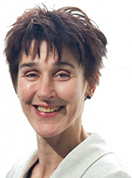
Marike Dijksterhuis
Achievements:
- Distinguished District
- Excellence in Leadership Award
- Excellence in Education & Training Award
Officers:
- PQD Manie Conradie
- CGD Dominique Carrasco
- PRM Nelson Emilio
- FM James Sorlie
- AM Bess Stonehouse
- IPDD Jaap Russchenberg
Achievements:
- President’s Distinguished District
- Excellence in Leadership Award
- Excellence in Program Quality
- Excellence in Club Growth
Officers:
- PQD Ana Isabel Ferreira
- CGD Nelson Emilio
- PRM Francesco Fedele
- FM Zukhra Abdumalikova
- AM Ulrike Laubner
- IPDD Marike Dijksterhuis
Achievements:
- Distinguished District
- Excellence in Leadership
- Excellence in Club Growth
Officers:
- PQD
- CGD Siegfried Haack
- PRM
- FM
- AM
- IPDD
Reformation of Districts 59 & 95
Toastmasters in Europe has been growing steadily for many years and this trend looked set to continue. District leaders in D59 & D95 recognized the need to offer a good support to clubs and maintain growth, whilst keeping the leadership challenge manageable. Supported by the Board of Directors, both district directors appointed a reformation committee to analyse the situation and propose future district structures.
Following instruction from Toastmasters International Board of Directors in August 2015 to districts 59 and 95 to set up a joint reformation committee.
The committee’s task was to conduct a needs analysis and develop a reformation proposal to create district structures in Europe that are:
- In line with Toastmasters Policy (policy 7.0)
- Sustainable
- Operationally manageable
- For implementation on 1st July 2018, if approved by the Board of Directors
Analysis was conducted regarding expected club growth, club strength, financial feasibility, leadership potential and geographical considerations from September 2015 to January 2016.
The final report from the European Committee is now available here.
European Reformation Draft Proposal
During Executive Committee meetings in Nice and Budapest on February 6th, European Reformation Committee Chair Morag Mathieson presented a draft proposal for the reformation of our two districts during a joined streamed session. The draft proposal is the result of an intense exploration of over 20 possible options. On scrutinizing, most of them turned out to have too many disadvantages to be viable options.
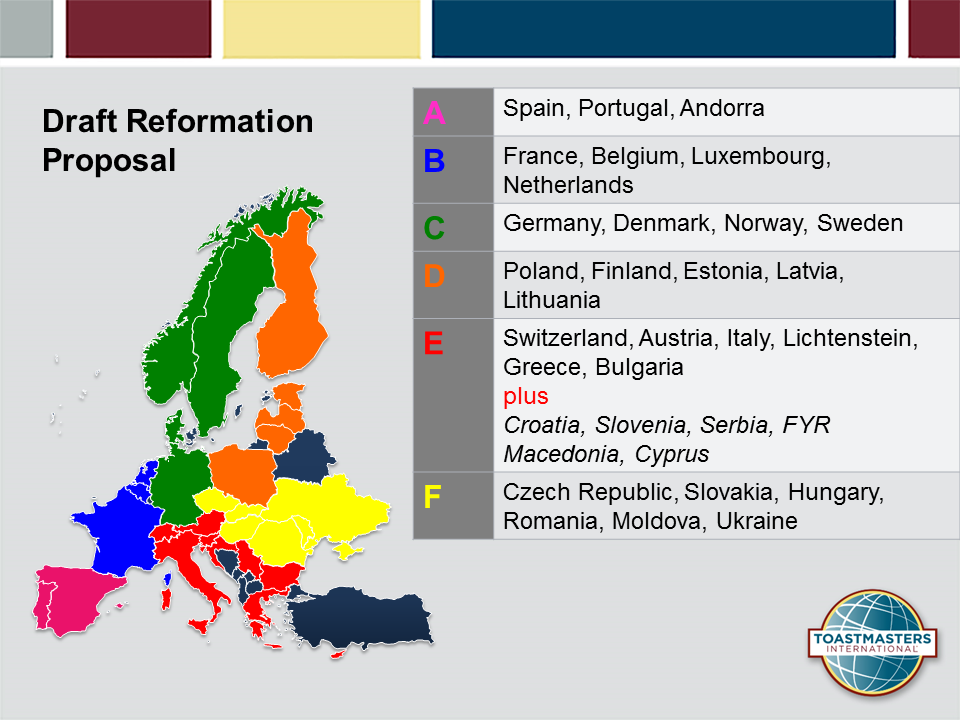
The draft proposal was open for discussion until March 19th. Until that date questions were sent to the committee and all questions and the answers posted in the FAQ section bellow. After March 19 the Reformation Committee finalized the proposal and sent it to the District Directors by April 2nd. On April 16th the final proposal was sent to all district council members so they can prepare for their vote at the District Council Meetings in May. In May both District Councils approved the proposal.
Why was reformation necessary?
Since district 59 was reformed in 2014 to create districts 59 & 95 the number of clubs in Continental Europe had continued to grow. This is great because it offers more people the opportunity to benefit from the Toastmasters program. However it also makes it more challenging for district leaders, including area and division directors, to support clubs and effectively fulfill responsibilities to individual members. At the same time the chance of taking up leadership opportunities may reduce and the costs of running the district increase.
In December 2015 D59 had 203 paid clubs and D95 had 229 paid clubs. Once a district has 200 clubs it can apply to the Board of Directors at Toastmasters International to request permission to begin the reformation process. This approval was given in August 2015.
What factors did the reformation committee consider during the analysis process?
The Governing Documents of Toastmasters International details the following factors:
- Reformed districts will have no fewer than 100 clubs each
- Number of clubs, club strength, growth trends, growth potential, population, education, languages spoken, and geographic influences for all districts
- Reasons why the reformation is in the best interests of the members, the clubs, the districts, and Toastmasters International
- Marketing plan projecting growth and identifying key market opportunities for all districts
- Succession plan identifying qualified future leaders in all districts
- Financial projections demonstrating the anticipated income and expense for all districts
Which of the proposed districts inherited numbers 59 and 95 and why?
When a district is reformed, the district number is given to the new district with the oldest club in its boundaries. In district 59 the oldest club is Bossuet Gavaliers in Luxembourg and the number 59 will go to district B in the proposal.
The number 95 went to district C because the oldest club in district 95 is Ramstein Speakers Bureau. The other districts were be assigned a new number by World Headquarters (see below).
July 1st, 2018 – new districts 59 and 95
On July 1st, 2018 the new districts 59 and 95 were born, including the following countries:
– 59, the District “B” (France, Belgium, Luxemburg and the Netherlands)
– 95, the District “C” (Germany, Denmark, Norway and Sweden)
Four “new” districts were created on July 1st, 2018
The new districts were assigned new numbers, and included the following countries:
– 107 was assigned to District “A” (ES, PT, AD)
– 108 was assigned to District “D” (ES, PT, AD)
– 109 was assigned to District “E” (IT, CH, AT, BG, CY, GR, FL, MK, SM, VA).
– 110 was assigned to District “F” (ES, PT, AD)
Over the following years these new districts have grown with the addition of new countries.
(to be updated)
